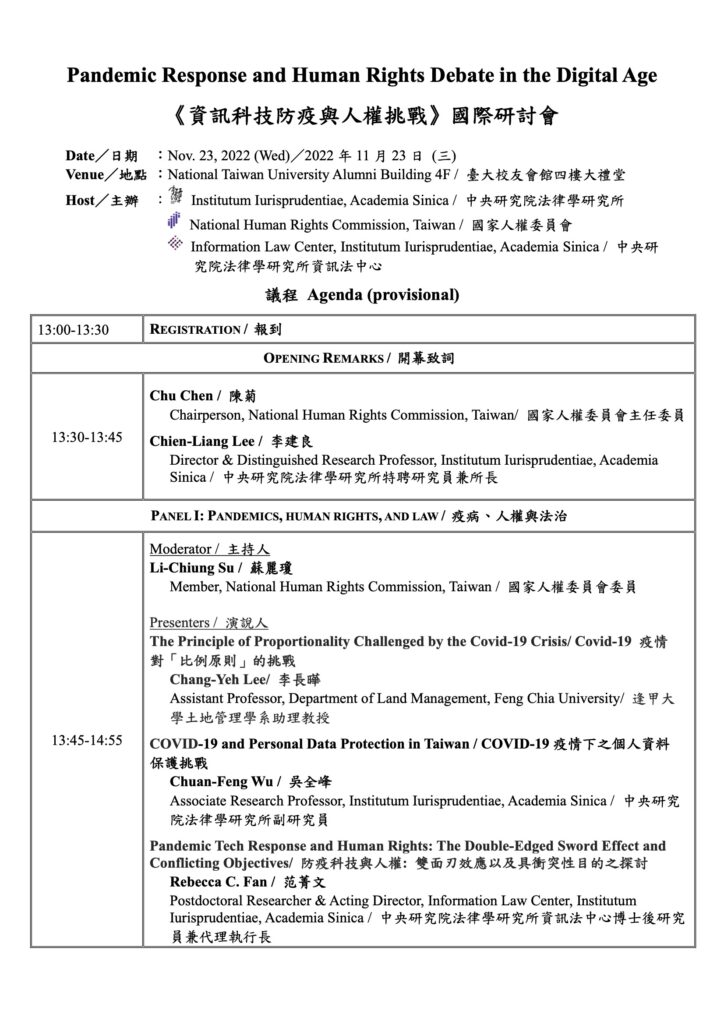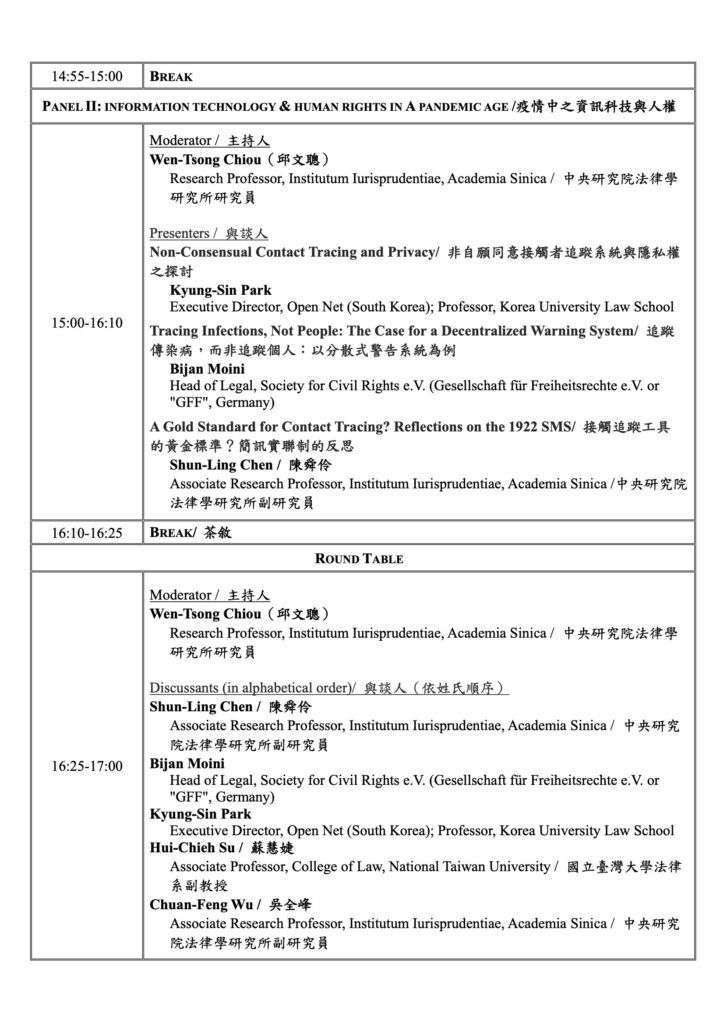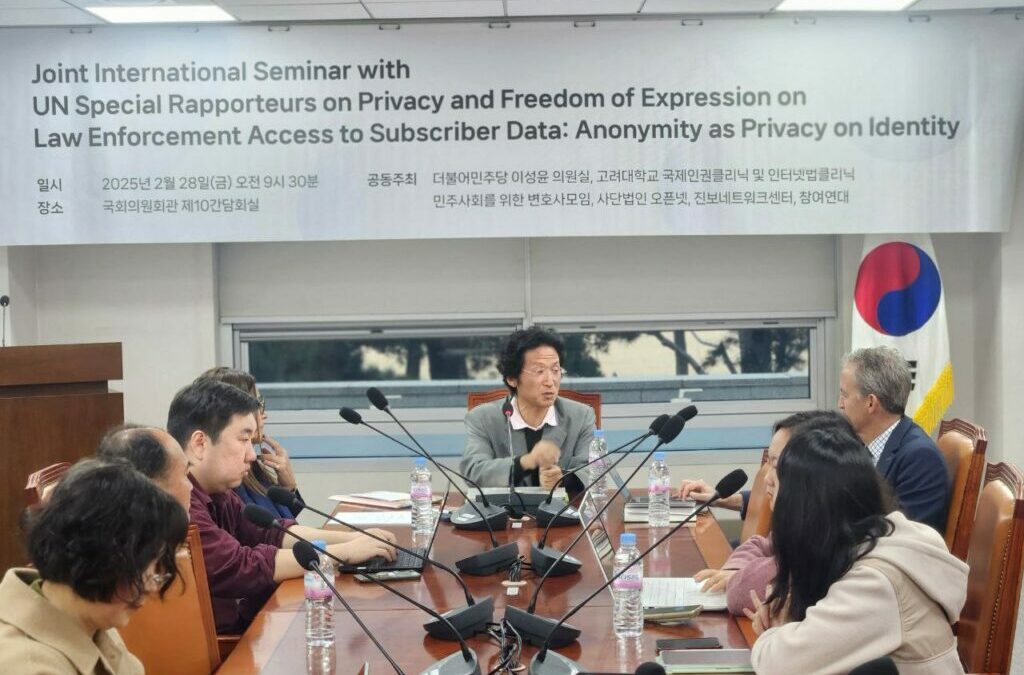On November 23, KS Park participated in a conference hosted by Institute of Academia Sinica and National Human Rights Commission of Taiwan to discuss the human rights implications of various contact tracing tools that various countries deployed as follows:


K.S. Park challenged the participants to avoid taking Korea’s successful contact tracing as a cultural exception but instead examine it against an international human rights standard on the issue of when and how the government can intrude upon citizens’ privacy in a lecture that can be summarized as follows:
Korea was the only country in the world that implemented and sustained for a long period of time a non-consensual patient location tracking scheme based on the cell tower location information. Korea used it to alert the public and the sanitation/testing authorities of the itineraries of COVID-19 patients so that they can take appropriate evasion, detection, or testing measures. Such scheme, not based on any warrant or otherwise neutral safeguards, was justified by the country ‘s experience with MERS where a handful of confirmed patients who were not forthcoming with their itineraries ended up infecting more than 80% of the patients. On top of that, the law broadened the target of such non-consensual tracking to include those “suspected of being in contact with patients.” This allowed non-consensual identification of all phone numbers that connected to the same or nearby cell towers as the patients’ phones contacted, and the authorities sent the testing advisories to this massive list of phone numbers. This was particularly effective because people do not pay much attention to the public notices about patients’ itineraries. Korea could focus their testing resources to the particularly test-worthy subjects and this was an advantage that was not available to any other country. However, the public’s responses varied. Apparently, civil society did not act strongly against the non-consensual tracking of patients but they showed the concerns about public disclosure of the itineraries. However, such concerns were quickly addressed by trimming the identifiable details of the patients. What the civil society resisted most was the non-consensual identification of those “suspected of being in contact with patients”. This issue is full of a dilemma because the authorities merely confirmed that certain phone numbers contacted the same or nearby cell towers as the confirmed patients’ phones and they simply use the information for the phone number owners’ benefit, i.e., to advise them of a possible need to get tested. Also, it is not clear how much privacy interest is implicated when the authorities notify people of certain medical need without identifying them and such notification is based on the macroscopic location of that person. This issue segways into the issue of privacy in public places but is complicated by the fact that Korea also allows warrantless identification of the parties to private communications under other laws, which means that there is an issue of trust on whether the authorities can really notify the possible contacts without identifying them. This author believes that the focus on the original issue of warrantless location tracking of confirmed patients should not be lost because that public action provides the basis for the added action of identifying and notifying those found in vicinity of the confirmed patients. In the presentation, the author will unravel the international human rights discourse on warrantless location tracking and privacy such as the U.S. Supreme Court precedent on “administrative search”, a possible legal basis authorizing such tracking.
Given the geopolitical situation that Taiwan is in, it is profitable for human rights experts and legal experts to “raise the bar” on human rights so that the political changes in other branches of the government do not reverse the progress, and warrantless contact tracing can be on slippery slope through which government surveillance can be strengthened.

![[Rightscon 2025 Taipei] SEACPN on Content Moderation](https://www.opennetkorea.org/wp-content/uploads/et_temp/Screen-Shot-2025-03-16-at-1.09.36-AM-218207_1080x550.png)
0 Comments